
The University of Cape Town (UCT) is a public research university in Cape Town, South Africa. Established in 1829 as the South African College, it was granted full university status in 1918, making it the oldest university in South Africa and the oldest university in Sub-Saharan Africa in continuous operation.

Shenton College is a public co-educational senior high school, located in Shenton Park, an inner western suburb of Perth, Western Australia. Like many WA high schools, it is a partially selective school with out-of-area students accepted on a number of criteria. It is one of the largest schools in Western Australia, with 2,839 enrolled students as of 10 May 2024.
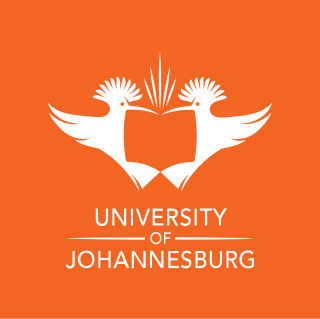
The University of Johannesburg, colloquially known as UJ, is a public university located in Johannesburg, South Africa. The University of Johannesburg was established on the 1st of January 2005 as the result of a merger between the Rand Afrikaans University (RAU), the Technikon Witwatersrand (TWR) and the Soweto and East Rand campuses of Vista University. Prior to the merger, the Daveyton and Soweto campuses of the former Vista University had been incorporated into RAU. As a result of the merger of Rand Afrikaans University (RAU), it is common for alumni to refer to the university as RAU.

Helderberg College of Higher Education is a private higher education institution situated in Somerset West, South Africa, about thirty minutes from Cape Town. It was established in 1893, and was the first Seventh-day Adventist College established outside of North America under the name "Union College." It moved to its present location in 1928, making it the oldest Adventist college on the continent of Africa. It is owned and operated by the Southern Africa Union Conference of Seventh-day Adventists, with headquarters in Bloemfontein, South Africa.
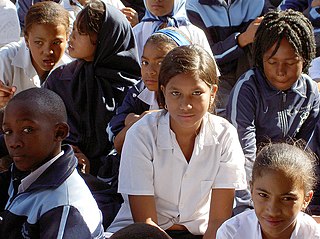
Education in South Africa is governed by two national departments, namely the Department of Basic Education (DBE), which is responsible for primary and secondary schools, and the Department of Higher Education and Training (DHET), which is responsible for tertiary education and vocational training. Prior to 2009, both departments were represented in a single Department of Education. Among sub-Saharan African countries, South Africa has one of the highest literacy rates. According to The World Factbook - Central Intelligence Agency as of 2019, 95% of the population aged from 15 and over can read and write in South Africa were respectively literate.

Rondebosch Boys' High School is a public English medium high school for boys situated in the suburb of Rondebosch in Cape Town in the Western Cape province of South Africa. It is one of the oldest schools in the country, having been established in 1897. Rondebosch is the only school in the Western Cape to have a Nobel Prize laureate, Allan M. Cormack in Physiology and Medicine.

Westerford High School is a public English medium co-educational high school situated in the suburbs of Rondebosch and Newlands in Cape Town in the Western Cape province of South Africa.
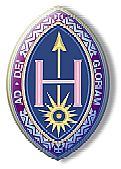
Herschel Girls School is a private, weekly boarding and day school for girls, located in Claremont, a southern suburb of Cape Town, Western Cape, South Africa. The school has pre-nursery through to grade 12 and is affiliated with the Anglican church, which owns the school buildings.

Alexander Sinton Secondary School, also known as Alexander Sinton High School, is an English-medium school in Athlone, a suburb of Cape Town, South Africa. The school is located in the Cape Flats, an area designated as non-white under the Group Areas Act during apartheid. The school was involved in the anti-apartheid student uprisings of the 1970s and 1980s. Staff and students at the school made headlines when they barricaded the police into their school in September 1985. The following month, three youths were killed near the school by police officers who opened fire on protesters in the Trojan Horse Incident. It was the first school to be visited by Nelson Mandela after his release from prison. As of 2014, the school has 1,100 pupils, half boys and half girls. The school employs 40 teachers and six non-teaching staff.
In South Africa, matriculation is the final year of high school and the qualification received on graduating from high school, and the minimum university entrance requirements. The first formal examination was conducted in South Africa under the University of the Cape of Good Hope in 1858. In general usage, the school-leaving exams, which are government-administered, are known as the "matric exams"; by extension, students in the final year of high school are known as "matriculants" or, more commonly, "matrics". Once the Matric year has been passed, students are said to have "matriculated".
Milnerton High School is a public English medium co-educational high school for Grades 8 to 12, situated in the Milnerton suburb of Cape Town, Western Cape, South Africa.
Table View High School was founded in 1986 in Table View, near Cape Town, and is a public dual-medium Afrikaans and English school that enrolls both boys and girls (co-educational). The school is financially assisted by the Western Cape Education Department and therefore, like most other schools in South Africa, it charges a school fee, as regulated by the South African Schools Act. The school's current principal as of 2018 is Ms. R Cummings.

Sinenjongo High School is a high school in Joe Slovo Park, Milnerton, Cape Town, South Africa.
Mondale High School is a school in the Western Cape, South Africa. The school was founded in 1982.

Boksburg High School is a public high school in Boksburg, a suburb of Ekurhuleni, South Africa. The school was founded in 1920 as the Rand East Training and Preparatory College under its first Principal, Mr Charter. In 1925, the school changed its name to Boksburg High School. Over the years, substantial additions to the campus grounds were made such the absorption of Leeuwpoort Primary School. The school has had seven Principals over its nearly 100 years history and its enrollment rate expanded from the first class of the REPTC which consisted of 13 students, to approximately 1600 students as of 2019, acceptance to which being highly sought after with the school often receiving more applications for admission than places available. The school is among the top performing schools in its district.
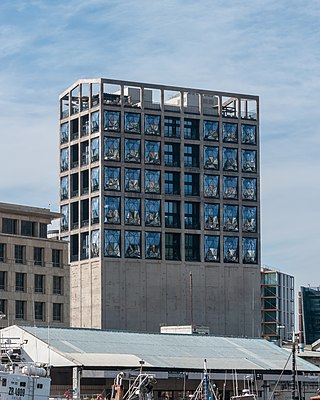
Zeitz Museum of Contemporary Art Africa is a public non-profit museum in Cape Town, South Africa. Zeitz MOCAA opened on September 22, 2017 as the largest museum of contemporary art from Africa and its diaspora. The museum is located in the Silo District at the Victoria & Alfred Waterfront in Cape Town. A retail and hospitality property, the Waterfront receives around 24 million local and international visitors per year.
Enchi College of Education is a teacher education college in Enchi, Western North Region, Ghana. It is one of 46 public colleges of education in Ghana. The college participated in the DFID-funded T-TEL programme. Mr. Philip Ntaah has been the Principal since May 2019.
Foso College of Education is a co-educational teacher education college in Foso. The college is located in Central / Western zone. It is one of 46 public colleges of education in Ghana and participated in the DFID-funded T-TEL programme.
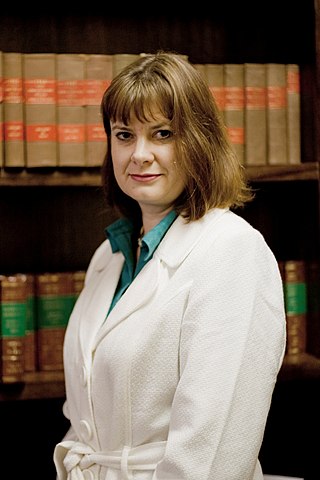
Deborah Anne "Debbie" Schäfer is a South African politician and lawyer who served as the Western Cape Provincial Minister of Education and a Member of the Western Cape Provincial Parliament for the Democratic Alliance (DA) from 2014 to 2022. Prior to serving in the provincial government, Schäfer served as a Member of the National Assembly from 2009 to 2014.

Educational management in South Africa involves overseeing the country's educational policies, administration, and implementation. South Africa has the highest quality of education on the African continent. However, the country faces challenges in education, including historical inequalities, inadequate professional development for educational staff, and financial constraints. Poor educational management is a factor in these challenges. The South African government has made efforts to improve the educational management system by using participatory and democratic leadership, establishing professional qualification and training, improving school autonomy and cultural diversity management, strengthening infrastructure and financial management.
















